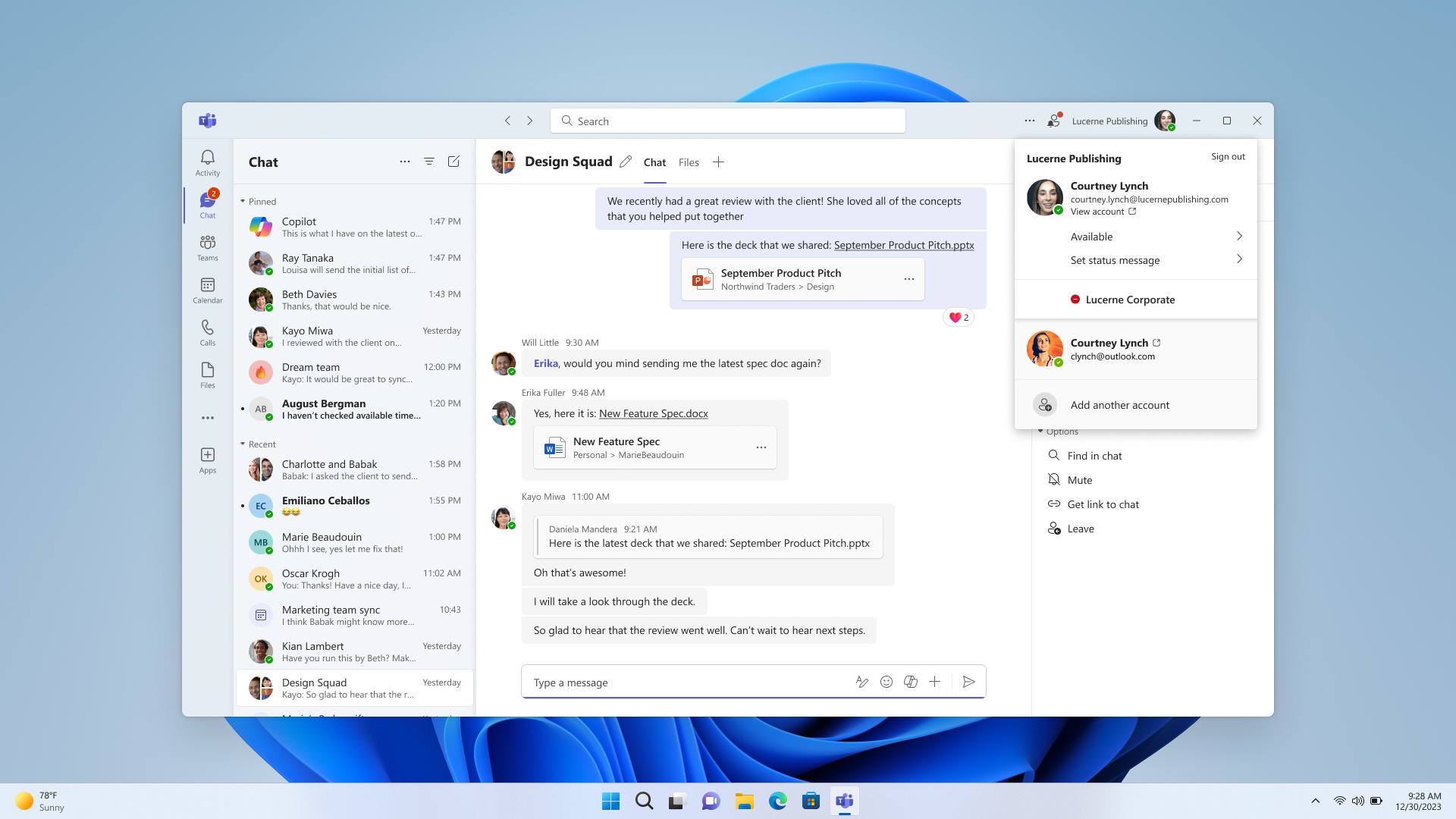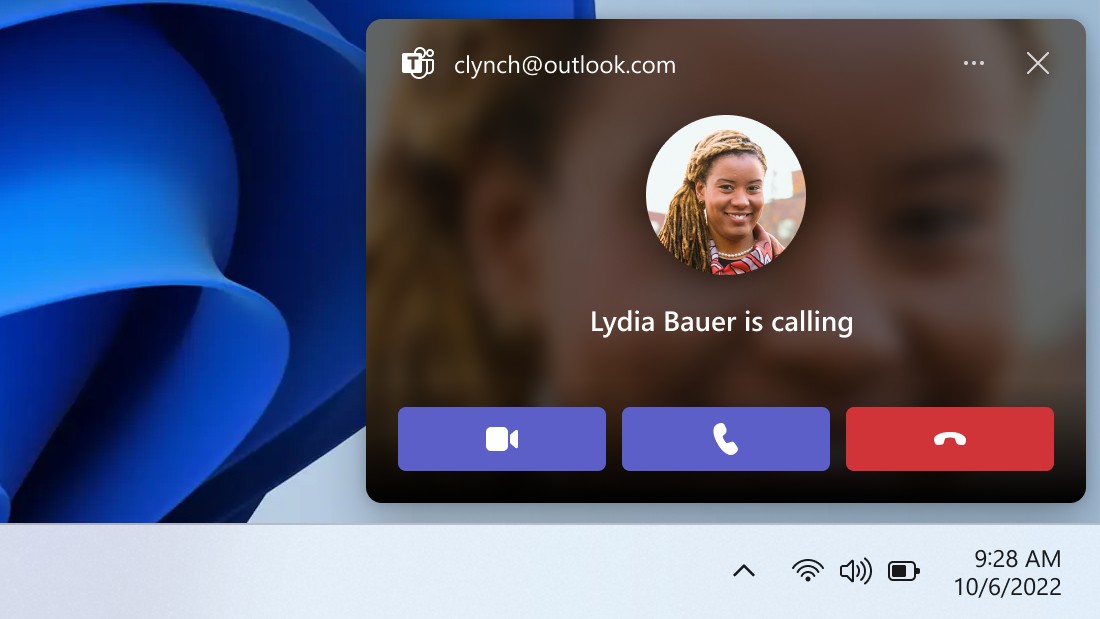Microsoft unveils unified Teams app for Windows 11 — supports both work and personal accounts
The unified Teams client is coming to Windows 11 later this year.

What you need to know
- Microsoft has detailed its plans to unify the Teams client on Windows 11.
- The new unified Teams client will support all Teams accounts, including work, school, and personal.
- Insiders can start testing the new Teams client today in the latest Windows 11 preview build.
Microsoft has finally unveiled its plans for a unified Teams client that supports all three Teams account types. Up until now, there have been two Teams clients, one for commercial accounts and another for personal accounts. By default, Windows 11 has come preloaded with the client for personal accounts, meaning those who use Teams for work or school have been forced to download a second Teams client before being able to gain access.
Now, starting with the Windows 11 version 24H2 release coming later this year, Windows 11 will come preloaded with a unified Teams client that supports both commercial and personal accounts. This means users will no longer be required to download a separate client to use Teams for work, and Windows will natively support logging into Teams with a work or school account.

The new Teams client includes a slightly updated user interface that lets users switch between their work environment and personal chats. The client will handle Teams meetings, conversations, calendar alerts, and more. Additionally, notifications have been updated with information such as which account the notification belongs alongside other important details.
Users will also be able to launch two instances of the new Teams client, one for personal and one for work, via separate icons if they wish to have both views open simultaneously. The company says the older, personal Teams client that comes preloaded with Windows 11 currently will be removed in a future update.
Get the Windows Central Newsletter
All the latest news, reviews, and guides for Windows and Xbox diehards.

-
GraniteStateColin I love Teams (at least the Work version). And since Teams Personal became the default communication tool built into Windows 11, I've moved my whole family from Skype to Teams personal for chat. I think Teams (the Work version) is the best new App MS has developed since Excel, maybe ever. Having said all of that, I don't understand the benefit to combining the personal and work versions, unless they will still allow you to have multiple windows open or fully merge contact lists so you can easily chat with wife and co-workers at the same time.Reply
If I can pin all my Chat contact Favorites to Chat from both Work and Personal, then this would be fine, but at least based on how they've implemented the combined version on other OS's, that's not how it works.
On Android, Work and Personal are combined into one broken app, and, at least on the Microsoft Surface Duo 2, don't work at all. Each Work and Personal work, but not together. Only one can be active at a time and changing between them is painful. If you change between Work and Personal, nothing happens after it moves the check mark to the other account. You have to quit and restart the app to force it to actually switch between the accounts. Even if it worked, there is no way to talk with family when the work account is active and vice versa: It's absolutely the worst of all possible worlds. Even assuming they fix that before the Windows launch, if you can only work in one at a time, then blending those into a single app doesn't help users, it merely eliminates the ability to multitask them (so maybe a benefit to users with extremely limited RAM who can't run two copies of Teams at the same time, but a huge detriment to everyone else).
To be fair, if they implement it properly (the opposite of what they did with Android), this could be fine. For example, in Outlook, you can have multiple mailboxes all visible in the same Mail view. You can overlay multiple calendars from different mailboxes too. That's great. IF this new Teams provides such seamless cross-org/personal support for Teams accounts, then it too would be great. That's NOT what they've done on Android, which is just a dreadful mess.
